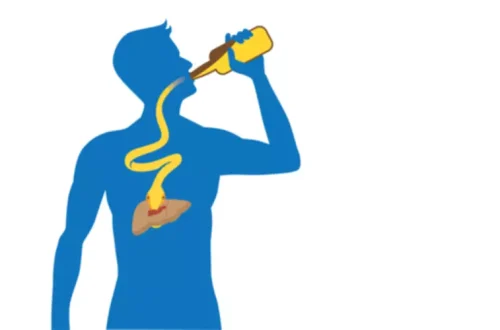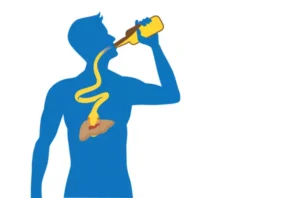Sober living
FAMILY RESOURCES Friends of Recovery New York

After completing a treatment program, continue to provide ongoing support and encouragement. Encourage participation in aftercare programs, such as therapy or support groups, and be there to celebrate their successes and offer guidance during challenging times. Learning about substance use disorder as a disease can shift your perspective significantly. Addiction isn’t a choice but a complex condition that affects an individual’s brain and behavior.
Online Therapy Can Help
The chances of relapsing after rehab dramatically rise for individuals who just try and go back to “normal life,” rather than pursuing further treatment in aftercare. There are several types of aftercare including follow-up visits for continued therapy, group therapy, and sober living homes. Catholic Charities operates several rehab centers across Orange and Sullivan counties, but the location that scored the best was the Monticello campus near the Catskill Mountains in Southern Upstate New York. With a 6.71, the facility scored just 0.01 higher than the fourth place contender, START. This rehab scored well above average because of the high number of treatment approaches it uses (11) and the number of extra services (38) it offers. Notably, it doesn’t accept TRICARE (the military health insurance program), but it does accept Medicaid and Medicare, as well as other state health plans.

Finding a Substance Abuse Treatment Center in New York State
- Recognizing these interconnected challenges is crucial to offering meaningful support during the recovery process.
- As a friend offering peer support in addiction recovery is always the right decision.
- We know that substance use disorders can have a devastating impact on the families and other loved ones of individuals in active addiction.
- Cooperative Extension, which staffs local offices in all 100 counties and with the Eastern Band of Cherokee Indians.
- This may include not providing financial aid or covering up their mistakes.
- This confusion can often lead to you feeling out of your depth or providing information that isn’t necessarily helpful.
In conclusion, supporting a loved one with mental health challenges is a delicate balance of empathy, patience, and self-care. By educating yourself, communicating openly, and encouraging professional help, you can create a supportive environment where both you and your partner can thrive. Just remember, your well-being is just as important as theirs, and taking care of yourself is one of the best ways to offer sustained support. As noted at the top of the article, it is so important to find your own source of healing. Proper self-care and support will not only help you, but will also demonstrate recovery related behaviors to your loved one in recovery.
Drug & Alcohol Addiction Rehab, Treatment & Recovery Resources in New York State

In Augusta, Ga., one team of seven AmeriCorps members serving with FEMA Corps are supporting the FEMA response. The key to keeping your family safe is to have a plan and to know what to do in the event of severe weather or other disasters. This site will help connect you with resources so that you can be prepared for whatever strikes. From wildfires, to snow/ice storms, to tornadoes, to flooding and even hurricanes, residents of North Carolina always need to be ready and prepared to deal with a disaster.
If you need help in locating a recovery program for someone you care about, you can visit our addiction treatment directory or talk to someone about how to get into a program that suits your loved one’s needs. If you would like more information about addiction treatment options available in your area, contact American Addiction Center’s helpful admissions navigators at for a free, private consultation today. You can also quickly and easily check your loved one’s insurance coverage for free by filling out the form below. In addition, you may consider attending therapy or support groups to address any issues that may have surfaced as a result of your loved one’s addiction. Getting this type of help is essential to your own health, and it will help you establish coping mechanisms for the intense demands of helping a loved one navigate the journey from active addiction to recovery. It can be hard to watch your loved one continue to use drugs or alcohol despite the harmful consequences that seem so obvious to you.
This not only keeps you informed but also reassures them that you are engaged and supportive of their journey. Celebrations don’t need to be lavish; even a heartfelt acknowledgment of their hard work can make a significant impact. Whether it’s their first week of sobriety or a year, recognizing these milestones reinforces their commitment and shows your unwavering support. To find a suitable support group, consider exploring resources like SAMHSA’s support group finder. Celebrating milestones and small victories in a group setting can significantly boost morale and motivation.
- This can include physical health, education, employment, finances, legal, family, social life, intimate relationships, and spiritual goals.
- Understanding recovery as a lifelong commitment helps those going through it and their support networks approach it with patience and realistic expectations.
- A full continuum of care is necessary to provide the foundation for a lasting recovery.
- Try to place yourself in their shoes, recognizing that their challenges may be invisible but very real.
- While some may think that completing treatment marks the end of the process, this stage is arguably the most critical.
They also have to learn to navigate the many triggers that may arise, and the risk of relapse may be high. Taking care of your own physical, emotional and mental needs first will make you better equipped to help your loved one through the difficult journey of recovery. There are also many support groups for families that can provide care and community as you navigate this challenging role. The three highest family support in addiction recovery rated treatment centers in or near Albany that offer payment assistance are listed below, along with each institution’s performance on our core metrics. Aftercare is often overlooked, but it’s one of the most crucial steps in the rehabilitation process.

Encourage Them to Attend (and Stay in) Treatment

The following sections provide a deeper look at the substance abuse problem in New York by examining key indicators in the five largest cities. Additionally, the three highest-rated rehabs that offer some type of payment assistance near each city are listed. As response and recovery efforts continue in the Southeast, FEMA is closely monitoring Tropical Storm Milton, which has formed in the Gulf of Mexico. FEMA has the resources and capacity to address multiple disasters simultaneously and is fully prepared to support affected communities wherever and whenever needed. With individualized care, the support of family and other loved ones, mutual assistance groups and recovery community centers, long term recovery is possible.
